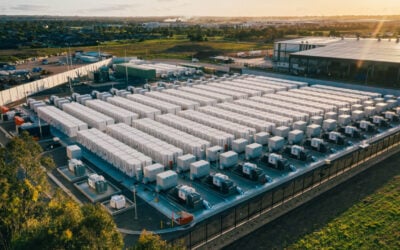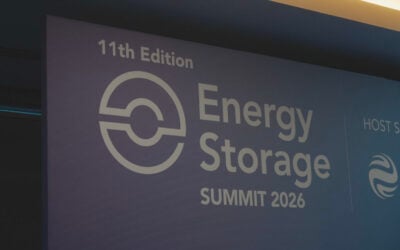ITP will analyse the performance of six major lithium-ion battery brands, comparing them to existing and advanced lead-acid battery technologies to investigate how they could operate in large and small electricity grids. Image: Leclanche.
A renewable energy and energy efficiency consultancy, IT Power (ITP), will use funding from the Australian Renewable Energy Agency (ARENA) to trial the effectiveness of six brands of lithium-ion batteries for enhancing grids and increasing the deployment of renewable energies.
At a test facility at the Canberra Institute of Technology, Canberra-based ITP is carrying out the trial, which has a total cost of AUS$609,000, using AUS$450,000 of ARENA funding.
ARENA chief executive Ivor Frischknecht said ITP will analyse the performance of six major lithium-ion battery brands, comparing them to existing and advanced lead-acid battery technologies to investigate how they could operate in large and small electricity grids.
The trial comes about over a lack of understanding about the operational characteristics and constraints of lithium-ion for large scale energy storage. This creates uncertainty about appropriate system size and a reluctance to adopt new battery technologies that could allow a more effective and cost efficient deployment of renewable energy, according to ARENA.
Try Premium for just $1
- Full premium access for the first month at only $1
- Converts to an annual rate after 30 days unless cancelled
- Cancel anytime during the trial period
Premium Benefits
- Expert industry analysis and interviews
- Digital access to PV Tech Power journal
- Exclusive event discounts
Or get the full Premium subscription right away
Or continue reading this article for free
To date, lithium-ion has often been less preferred in larger scale installations than alternatives such as flow batteries, lead acid, or mechanical storage systems such as flywheels for a range of factors. For example, lead acid can be cheaper at the point of installation, while flow batteries are considered easier to scale up to the right size. There have also been questions asked about lithium-ion’s safety compared to some other technology or battery chemistry types. Tesla’s recently announced range of lithium-ion based grid-scale batteries bucks this trend.
Frischknecht said: “Storage is important for allowing more renewable energy to be used in Australia on-grid and off-grid by smoothing out energy supply. Power companies could, for example, consider renewable energy based mini-grids with storage as an alternative to maintaining sections of the main grid that currently run at a loss.”
ITP managing director Simon Troman said: “Recent reductions in the cost of lithium-ion batteries coupled with potentially significant performance advantages warrant serious testing of this new storage option.”
The trial will last for three years and is scheduled for completion in June 2018. The results will be shared broadly across the energy industry with investors, power companies and researchers.
In December 2014 ARENA pledged AUS$445,000 for trials by energy storage specialist Reposit Power examining the capabilities of on-grid energy storage to maximise the value of rooftop solar. The Reposit Power scheme allows consumers to access their rooftop generated electricity at night and during peak times, thus reducing the demand placed on the grid. It also allows system owners to sell electricity from their batteries back into the market. The scheme was also described by Sam Wilkinson of research firm IHS as “one of the most interesting examples” of software as a differentiator in the energy storage marketplace.
Meanwhile in November ARENA also gave utility company AGL Energy the task of examining the business case for grid-connected energy storage in South Australia, with AGL to receive AUS$445,000 of funding.
While these examples of directly funded trials will hopefully yield positive results, Australian Energy Storage Council chief executive John Grimes recently blogged that in many regions of the country, despite seeming antipathy towards renewable energy and related low emissions technologies at government level, favourable economics for solar-plus-storage is making the twin technologies competitive in their own right.





